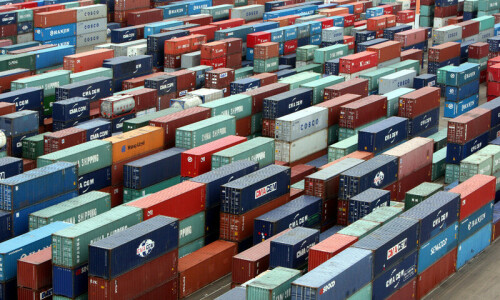GENEVA: China has initiated dispute settlement proceedings against the United States at the World Trade Organisation to safeguard its interests in the electric vehicle industry, the Chinese mission said on Tuesday and the WTO confirmed.
China said it was contesting “discriminatory subsidies” under the US Inflation Reduction Act that it said resulted in the exclusion of goods from China and other WTO countries.
The wide-ranging law provides billions of dollars in tax credits to help consumers buy electric vehicles and companies produce renewable energy, as President Joe Biden aims to decarbonise the mighty US power sector.
“Under the disguise of responding to climate change, reducing carbon emission and protecting environment, (these subsidies) are in fact contingent upon the purchase and use of goods from the United States, or imported from certain particular regions,” the Chinese mission said.
It said it was launching the proceedings “to safeguard the legitimate interests of Chinese electric vehicle industry and to maintain a fair level playing field of competition for the global market”.
A WTO official confirmed that a request from China for dispute consultations on the matter had been received, without providing details.
In Beijing, a spokesperson for China’s Ministry of Commerce said it urged Washington to “promptly correct discriminatory industrial policies, and maintain the stability of the global industrial and supply chains for new energy vehicles”.
There was no immediate response from the Office of the US Trade Representative in Washington to a request for comment. WTO rulings on trade disputes are supposed to take six months after an adjudication panel is set up but often take longer.
If the WTO finds in favour of China, Washington could always appeal that decision into a legal void in place since December 2019 when the WTO’s top appeals bench ceased to function due to US opposition to judge appointments. The United States is calling for reforms to the Appellate Body which it accuses of over-reach and negotiations are under way but face many obstacles.
Published in Dawn, March 27th, 2024
















































